A 2008 visa-free travel agreement between Russia and Brazil came into effect earlier this month, spurring tourism and closer ties between the two BRIC countries. In an e-mail interview, Oliver Stuenkel, a fellow with the Global Public Policy Institute, discusses the potential for commercial and political cooperation among BRIC member states. WPR: What is the current state of trade and visa restrictions between BRIC countries? Oliver Stuenkel: Since June 2010, Brazilian and Russian tourists do not need visas to pass or stay on the countries’ territories up to 90 days within each six-month-period from the first entry. This does not […]
The Americas Archive
Free Newsletter
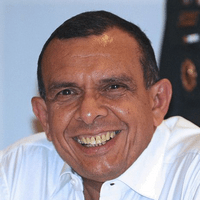
Almost a year ago to the day, members of the Honduran military physically removed then-President Manuel Zelaya from the presidential palace, stripping him of the presidency and forcing him into exile in Costa Rica. In spite of massive international attention and multilateral efforts in the days and months that followed, reconciliation — both domestically and internationally — remains elusive. The region continues to be divided over current President Porfirio Lobo’s legitimacy, to the point that on a recent return flight from Peru, Lobo’s plane had to bypass Ecuadorian airspace because the Ecuadorian government still refuses to recognize his presidency. Arguing […]
U.S. President Barack Obama announces that he has accepted the resignation of Gen. Stanley McChrystal and that he will nominate Gen. David Patraeus to take over command of the troops in Afghanistan. McChrystal’s resignation comes after a controversial profile of the general in was published in Rolling Stone Magazine.
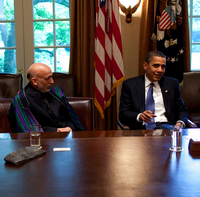
Are the deck chairs being reshuffled on the Titanic that is the Afghan war? First, Afghan President Hamid Karzai forced the resignations of his interior minister, Hanif Atmar, and the head of his intelligence services, Amrullah Saleh. Next, the U.K. special envoy to Afghanistan and Pakistan, Sherard Cowper-Coles, went on indefinite leave, turning over his post to his deputy. Now, in the aftermath of the infamous Rolling Stone profile, U.S. President Barack Obama has removed Gen. Stanley McChrystal as commander of U.S. and coalition forces in Afghanistan, replacing him with Gen. David Petraeus. What is interesting to note, of course, […]

MEXICO CITY — Ten years ago, Mexico’s National Action Party (PAN) swept to power on an agenda of change, ousting the Institutional Revolutionary Party (PRI) after 71 years of uninterrupted rule. The PAN agenda included more jobs, 7 percent economic growth and honest government — a departure from the PRI, which had presided over a political system oiled by corruption and patronage. A decade later, removing the PRI from power on the federal level remains the party’s greatest accomplishment. Much of the center-right party’s agenda has gone unfulfilled, and the PAN has largely failed to establish itself as a party […]
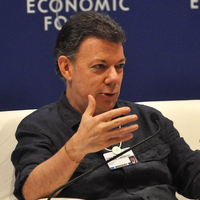
BOGOTÁ — If the opinion polls are any indication, Colombians will vote for continuity rather than change as the country elects its president in run-off voting on Sunday. Barring a major surprise, Juan Manuel Santos, former defense minister and heir-apparent to the hardline polices of outgoing conservative President Alvaro Uribe, is poised to become the next Colombian president. The latest polls give Santos a seemingly insurmountable lead of 66 percent to 27 percent, over his rival and two-time Bogotá mayor, Antanus Mockus. During first-round voting last month, Santos won nearly 47 percent of the vote, just shy of an outright […]
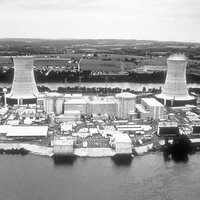
Will the Deepwater Horizon disaster, already 2010’s best candidate for the most significant “black swan” event, have a similar, long-lasting geopolitical impact as the Three Mile Island accident 30 years ago? If that mishap had not occurred, it’s very likely that the United States would have a vastly different, and superior, position vis-à-vis energy independence today. The U.S. could have moved down a similar path to that of France, which generates most of its electricity — some 78 percent — from nuclear power plants. Some of the side benefits the French enjoy as a result include much cleaner skies, since […]
The European Commission finalized a draft of a banking data-sharing agreement with the U.S. today. The draft will now be presented to the European Parliament and the heads of state meeting for final approval before taking effect. A similar deal was torpedoed by the EU parliament in February due to concerns over privacy infringements. In a nod to parliamentarians’ concerns, the new agreement includes conditions to limit shared data to information related to ongoing terrorist investigations and to forbid data mining. This is the first significant example of the EU parliament’s expanded powers under the Lisbon Treaty. I remain convinced […]
Earlier this month, Peruvian and Chilean leaders agreed to consider resuming confidence-building measures in order to rein in mutual defense purchases. In an e-mail interview, Eric Farnsworth, vice president of the Council of the Americas, discusses Peru-Chile relations. WPR: What is the current status of bilateral relations between Peru and Chile? Farnsworth: Both countries have a lot to gain by working together and serving as models for others in the region. Strong democratic governance, growing economies, free trade agreements with the United States and a growing relationship with Asia-Pacific nations has positioned both Peru and Chile to play an important […]

After half a century, the revolution in computer technology continues to rapidly transform the world about us. For reasons that are fundamentally economic, the atomic building blocks on which that revolution is based are semiconductor electronic components — chips. It has been estimated that technological improvements in semiconductors accounted for 40 percent to 60 percent of the price-performance improvement in computers in the late 1990s. Those rapid declines in computer prices in turn led to much wider usage of computers and significant improvement in U.S. productivity growth during the same period. The first electronic digital computers used during World War […]

The past year has been a pivotal period for one of the world’s most important strategic industries. In 2009 and early 2010, the military aerospace industry marked key turning points: For the first time, the U.S. Air Force — the world’s most important aerospace customer — bought more unmanned aircraft than manned aircraft. In the same time-span, the Air Force refused to extend production of its exclusive, world-beating F-22 fighter beyond the 187 units it has already ordered, instead opting to develop the smaller, potentially cheaper-per-unit and exportable F-35 Joint Strike Fighter. Following that decision, revelations surfaced in early 2010 […]

American culture has long had a fascination with outer space. President John F. Kennedy described it as “this new ocean,” and words like “destiny” and “frontier” are frequently used to characterize America’s relationship to it. Hollywood and the media often approach it with a sense of wonder, humility, and even a bit of fear. From the opening strains of “2001: A Space Odyssey” to the aliens from “Avatar,” space remains a source of mystery. This cultural phenomenon may be a remnant of the first two-thirds of the 20th century, when in the span of a single lifetime, it was possible […]
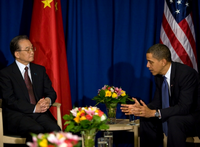
A lot of national security experts would like a lot more fire — and firepower — from our president. Op-ed columnists across America worry that our friends no longer trust us and that our enemies no longer fear us. President Barack Obama’s quest for more-equitable burden-sharing among great powers seems to be getting us nowhere, so why bother with more-equitable benefit-sharing? But before attacking the Obama administration’s coolly rational — dare I say “lawyerly” — take on great-power politics, let’s first remember what got us to this point. Bush-Cheney’s “It’s better to be feared than respected” tear nearly tore up […]
NewsHour’s Ray Suarez interviews Ambassador Susan Rice about the United Nations Security Council’s newly passed sanctions on Iran. Rice says that this round of sanctions specifically targets industries that could facilitate the development of Iran’s nuclear program. The ambassador also said she hopes these sanctions are just the beginning and leaves it up to member nations to reinforce and bolster the UNSC’s crackdown on Tehran. Having trouble viewing this video? Click here to watch.
The Obama administration has a number of reasons to be satisfied with the outcome of the U.N. Security Council sanctions resolution. To begin with, to the extent that the administration managed to successfully implement its stated plan over the past 18 months with regard to Iran, it is a political victory. Given the U.S. domestic opposition to initially engaging Tehran, and the subsequent challenges (Russia and China) to shepherding the resolution package through the Security Council, it’s even a significant political victory. And to the extent that the sanctions seem to stand up to scrutiny, it’s far from a hollow […]
Wednesday’s “No” votes by Brazil and Turkey against the U.S.-driven Iran sanctions resolution in the U.N. Security Council was a milestone in the shift to a multipolar world. A long-time friend of the U.S. and a NATO ally openly defied the Obama administration in a vital diplomatic effort to put the squeeze on Iran — perhaps the international community’s last concerted non-military effort to prevent Tehran’s ruling ayatollahs from possessing nuclear weapons. There was little doubt that one or both countries would rebel against the U.S. following Washington’s rejection of the nuclear fuel swap agreement they negotiated with Iran last […]
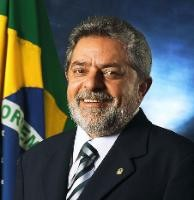
RIO DE JANEIRO — Secretary of State Hillary Clinton traveled to the 40th Organization of American States General Assembly meeting on Sunday with two priorities, neither of which were published in the meeting’s agenda: to shore up support for Honduras’ re-entry to the OAS, and to gather momentum behind the Obama administration’s drive to impose sanctions on Iran through the U.N. Security Council. It was a program designed to confront, without naming, the country that has become the greatest challenge to the Obama administration in Latin America — Brazil. To be sure, Venezuelan President Hugo Chávez has stood out as […]
